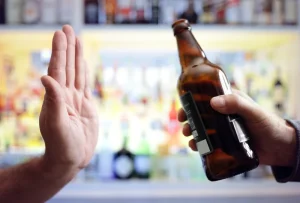
Don’t ever stop taking a benzodiazepine without talking to your doctor first. Benzodiazepines are a Schedule IV medication due to their risk of physical and psychological addiction. Long-term use of benzodiazepines may trigger a worsening of side effects and, in some cases, paradoxical side effects, meaning that you may experience an opposite response to the drug than you previously had. Some of these side effects can adversely affect your mood and behavior, causing an altered perception of yourself, your environment, or your relationships.

4. Special Populations and Withdrawal

Methadone is useful for detoxification from longer acting opioids such as morphine or methadone itself. Buprenorphine is the best opioid medication for management of moderate to severe opioid withdrawal. There is no clear answer to the question, “How long is benzodiazepine treatment?
Understanding Benzodiazepines and How They Work
If the protocol in Table 11 does not adequately control alcohol withdrawal symptoms, provide additional diazepam (up to 120mg in 24 hours). Although patients do not stay at a facility, The Recovery Village continues treatment for benzodiazepine addiction during outpatient rehabilitation. This includes meeting with counselors in individual or group sessions, planning aftercare treatment, and continuing any medication to mitigate lingering withdrawal symptoms. The Recovery Village strives to create unique treatment plans for each client and provide them with the necessary resources for their recovery.
- However, no set schedule for a taper has been validated in the current literature.
- All benzodiazepines work in a similar way but there are differences in the way individual benzodiazepines act on different GABA-A receptor sub-types.
- When discontinued, benzodiazepines should be slowly tapered to help avoid withdrawal symptoms like rebound insomnia and anxiety.
- Generally, benzodiazepine withdrawal symptoms fluctuate; the intensity of the symptoms does not decrease in a steady fashion as is the case with most other drug withdrawal syndromes.
Benzodiazepines: Uses, Dangers, and Clinical Considerations
Provide symptomatic treatment (see Table 3) and supportive care as required. Patients in benzodiazepine withdrawal should be monitored regularly for symptoms and complications. Procedure for administering clonidine for moderate/severe opioid withdrawal.

2. Pharmacologic Management of Withdrawal Symptoms
Currently, a gradual taper with clonazepam is used as maintenance therapy for BZD-dependent patients. However, it still carries the risk for abuse and dependence since this is also a BZD, albeit a slow-acting one [67]. While a therapeutic dose has not been proven teratogenic, use during pregnancy has been linked to low birth weight, preterm labor, and intrauterine growth restriction. The unborn fetus is at high risk for “floppy infant syndrome,” characterized by muscle laxity, failure to suckle, and oversedation. Approximately two weeks after birth, the infant experiences withdrawal consisting of continued difficulty feeding, high pitched cries, hyperexcitability, and consequently possible failure to thrive. The ultimate concern is that such fetuses will later be susceptible to autism, learning difficulties, attention deficit disorder, and general hyperactivity [24].
Mechanism of Action
- Benzodiazepines have properties that make them useful in treating a number of health conditions.
- Rohypnol (flunitrazepam) is an intermediate-acting benzodiazepine with general properties similar to those of Valium (diazepam).
- The use and discontinuation of alprazolam within 2 weeks disrupt sleep onset and quality, increasing suicide risks [51].
BZDs lead to long-lasting impairment of episodic implicit memory while it only impairs implicit memory transiently [1]. They also lead to disinhibition, impairing severe benzodiazepine withdrawal syndrome the user’s ability to appropriately assess the risky actions or behaviors. Elderly patients in intensive care can develop delirium if they are on a BZD [1].
Benzodiazepine Drug Interactions

